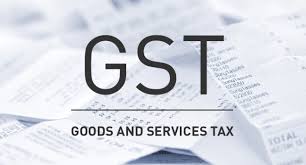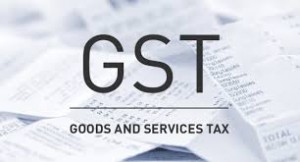A GST envisages as TAX of future – Incorporating all Central and State Indirect Tax under unified umbrella of taxation system.
A GST acronym pronounced more accurately as Goods and Services Tax, as a emerged as New taxation system introduce by the union government through The Constitution(122 Amendment) GST Bill 2014. The Bill envisages a unified comprehensive indirect tax system. Some very prominent features about the Bill –
- It gives the Central and State governments the concurrent power to laid down laws on taxation of goods
- The Bill establishes GST Council headed by the President. The Council will make recommendation on taxes, cesses, and surcharges levied by the centre,state and local bodies; The Council will also recommend model GST laws, principle of levy other things
- Composition of the GST Council: The GST Council is to consist of the following three members: (i) the Union Finance Minister (as Chairman) (ii) the Union Minister of State in charge of Revenue or Finance and (iii) the Minister in charge of Finance or Taxation or any other, nominated by each state government.
- Parliamentary system will pass laws on the recommendations of GST Council and also compensate the states who suffer revenue losses arising from the GST upto five year tenure.
- Alcoholic liquor, crude petroleum, diesel, petrol, aviation turbine fuel, and natural gas are not under the purview of GST.
- Only the Centre may levy and collect GST on supplies in the course of inter-state trade or commerce. Therefore Tax must divided between the centre and state by law.
- An Additional tax on the supply of goods in the course of interstate trade or commerce would be levied and collected by the centre. Such additional tax shall be assigned to states, for two year on recommendation by GST Council.
- It will impose all over country with uniformity of rate and replaces multiple central and state taxes.
A GST is expected to Boost the Economic Framework of country. The survey projects economic growth for 2014-15 to be at 7.4%, while for 2015-16 to be in between 8.1% and 8.5%. Therefore the survey emphasizes on the potential of GST and Direct Benefit Transfer system.
Click here for government certification in Accounting, Banking & Finance





16 Comments. Leave new
Good effort!!
Nice article. You mentioned all the features in a crisp manner. Informative.
GST is sure to bring a reform. It looks pretty good and the best thing is that it’ll simplify the economic system. Just one tax.
Anyway, you did a good job buddy.
Great work.
nice article, Thank you for sharing GST model.
Presenting the article point-wise is good. Can you please elaborate on your reply why petroleum, natural gas and liquor does not come under purview of GST?
Thank you.
Good efforts!
Nice article
nice aticle
@akulDevSaha
These are high valued taxed products. Govt didn’t regulate petroleum and natural gas prices now its being handled according to international market price. while Liquor is a debatable issue.
Ok Yashraj. Thanks for replying and explaining.
Very informative article.
very well explained!
Nice Points 😀
Nice work!!
Informative!!